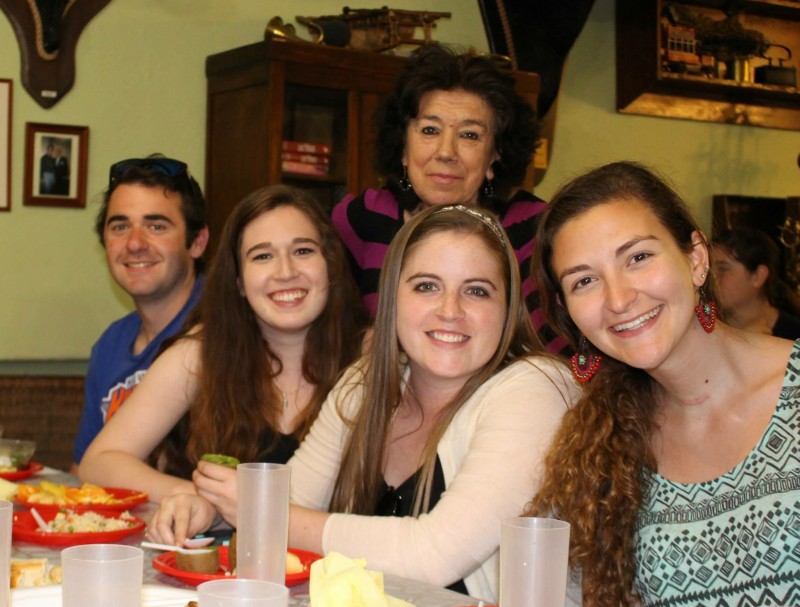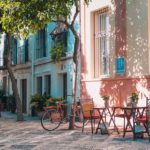Life With A Host Mother in Spain

My university’s Semester in Salamanca, Spain program requires students to live with host families. The families vary from house to house, some with a wife, husband, and children, and others with a single person. Each family houses 2-3 students and the living conditions vary depending on the set-up.
Before my trip, I was excited to live with a host family and be able to practice my Spanish and get a more authentic experience, but a bit nervous about where I’d be living. Would there be a husband? Would they have kids? Who would my roommate be? Would we share a room? Would I have my own? The questions were endless.
Life With A Host Mother in Spain.
When we got our living assignments, all we were given was the name of the woman of the house and the name of our roommate, with a street address that meant nothing to me. I’d just have to wait it out and see how it went. I met my roommate in the Madrid airport, and we set off to meet our “madres” (what we called the host mothers) in Salamanca.
Our host mother recognized Molly (my roommate) and I right away—we had sent her pictures before the trip—and she quickly ushered us into a nearby cab. Everything was happening so quickly, and she was speaking at rapid-fire speed. I had been up almost the whole night before on the plane and I was so overwhelmed that I had little to no idea what she was saying or if she was even talking to me.
A few minutes later, we arrived at a small apartment on a quiet street and she led us in. She showed us the house (it was extremely modest), and luckily we each got our own bedroom. We realized that she was the only person who lived in the house, but later found out she had a novio (boyfriend) who we’d never meet.
She would always say, “Los que duermen mucho, poco viven. Los que viven mucho, poco duermen,” which means, “Those who sleep a lot, live a little. Those who live a lot, sleep a little.”
I was nervous at first, but the experience was amazing. The first night, she made us soup and grilled cheese, which felt like home. Throughout the semester, we got all kinds of food including croquettes (fried ham and potato balls), paella (a famous Spanish rice and seafood dish), and all kinds of purees and meat.
The food was just the beginning. She was sweet, funny, and the most lively 70-something-year-old I’ve ever met. She was always going on about the news, asking us about our days, and laughing at whatever was on TV. She would help us with our Spanish by correcting us and teaching us words, and even asked us about an English word occasionally. One of my most memorable moments was when Molly and I taught her what a man bun was.
She always encouraged us to go out and experience the nightlife, and she did so herself—every night. She was not strict about when we came and went, as long as we were being safe. She would always say, “Los que duermen mucho, poco viven. Los que viven mucho, poco duermen,” which means, “Those who sleep a lot, live a little. Those who live a lot, sleep a little.”
We may have all shared one tiny bathroom and had to keep the lights off most of the time (electricity is very expensive in Spain), but I wouldn’t have had it any other way. She was there to help us, and did everything from cooking and cleaning to laundry and ironing. She was more than just our madre.
Photo by Rachel Petty.








